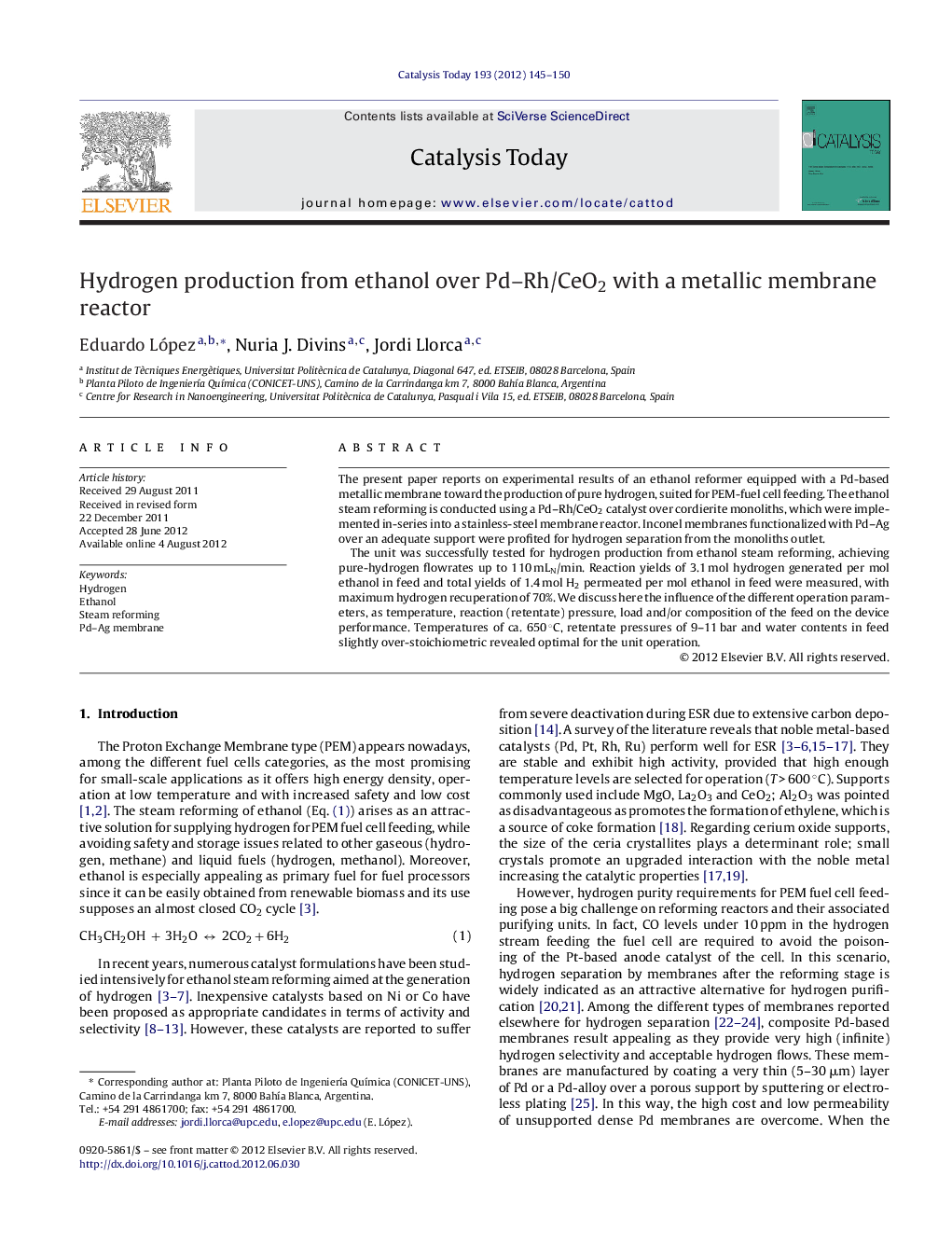| Article ID | Journal | Published Year | Pages | File Type |
|---|---|---|---|---|
| 55074 | Catalysis Today | 2012 | 6 Pages |
The present paper reports on experimental results of an ethanol reformer equipped with a Pd-based metallic membrane toward the production of pure hydrogen, suited for PEM-fuel cell feeding. The ethanol steam reforming is conducted using a Pd–Rh/CeO2 catalyst over cordierite monoliths, which were implemented in-series into a stainless-steel membrane reactor. Inconel membranes functionalized with Pd–Ag over an adequate support were profited for hydrogen separation from the monoliths outlet.The unit was successfully tested for hydrogen production from ethanol steam reforming, achieving pure-hydrogen flowrates up to 110 mLN/min. Reaction yields of 3.1 mol hydrogen generated per mol ethanol in feed and total yields of 1.4 mol H2 permeated per mol ethanol in feed were measured, with maximum hydrogen recuperation of 70%. We discuss here the influence of the different operation parameters, as temperature, reaction (retentate) pressure, load and/or composition of the feed on the device performance. Temperatures of ca. 650 °C, retentate pressures of 9–11 bar and water contents in feed slightly over-stoichiometric revealed optimal for the unit operation.
Graphical abstractFigure optionsDownload full-size imageDownload high-quality image (98 K)Download as PowerPoint slideHighlights► Pd–Rh over cerium oxide catalyst for hydrogen generation by ethanol steam reforming. ► Pd–Ag composite metallic membranes were used to separate a pure hydrogen stream. ► Up to 0.4 L hydrogen per mL liquid ethanol in feed and gram catalyst. ► Hydrogen recuperations of +70% were measured. ► Optimal operating conditions: T ca. 650 °C, pressures 9–11 bar, S/C = 1.6 (water slightly over-stoichiometric).
